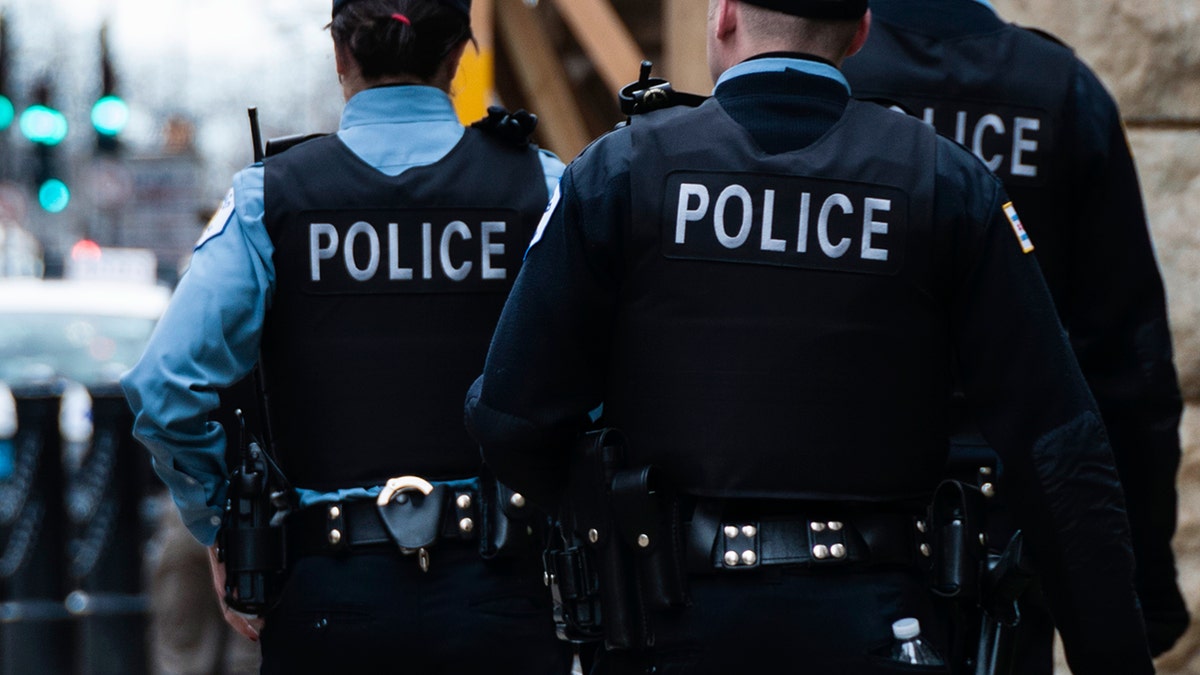Fox News Flash top headlines for June 29
Fox News Flash top headlines are here. Check out what's clicking on Foxnews.com.
Last month, federal prosecutors scored a guilty verdict for executives of the New York-based Law Enforcement Employees Benevolent Association (LEEBA) on charges of corruption, including embezzlement, conspiracy to commit tax evasion, and making false statements to federal investigators.
Former New York state trooper Kenneth Wynder Jr., president and co-founder of LEEBA, is accused of stealing some $500,000 from union members’ retirement accounts. Two other union executives were also charged in the scheme.
Wynder allegedly used the funds for things like buying a Lexus, going sailing and traveling to Dallas for a Cowboys game. The Department of Justice found that the embezzlement scheme wiped out "the entire balance of certain members’ [retirement] accounts."

It’s only fair that union members who have been let down by their leadership should be able to resign from the union and stop paying dues. (Fox News )
The blatant theft was apparently the icing on the cake. Some in the LEEBA membership already felt that that union was simply slacking – doing a poor job of representing them at the bargaining table.
THE UNION LOOPHOLE THAT COULD SAVE POLICE FROM ‘AMERICA’S MOST DANGEROUS LAW'
"LEEBA inflicted severe damage on its members over the years, to the point that it created division, disgust and disdain," said Bruce Mateer, a former member of the union. "Thanks to LEEBA, we have one of the worst-paid police departments in the entire state of New York and we lack proper retirement benefits. LEEBA is supposed to serve their members, but both contracts that LEEBA signed did not meet their members’ needs."
Labor unions are supposed to have one simple function: represent their workers during negotiations with management and try to get the best deal possible. Kenneth Wynder and his cronies are unfortunately just the latest in a long tradition of union bosses who decided to make enriching themselves their No. 1 priority.

Some members believed the union was doing a poor job of representing them at the bargaining table. (iStock)
It’s only fair that union members who have been let down by their leadership – whether that leadership is outright criminal or just inept – should be able to resign from the union and stop forking over a portion of their hard-earned wages for its dues.
Incredibly, the right to resign union membership and stop paying dues didn’t exist until just five years ago.
In 2018, the U.S. Supreme Court ruled in Janus v. AFSCME that public sector employees who left their union were no longer required to pay union fees. Now, workers like the police officers bilked by LEEBA can ditch their corrupt unions and take their wages with them.

Big Labor has leveraged their political clout to find ways to keep workers trapped in their clutches. (South_agency via Getty Images)
Of course, Big Labor has leveraged their political clout to find ways to keep workers trapped in their clutches. Thanks to an illogical carve-out, LEEBA will continue to represent officers at the bargaining table – even those who have chosen to resign membership.
Known as "exclusive representation," this practice gives unions a legal right in many states (including New York) to represent all employees in a bargaining unit, even if an employee did not vote to join the union, or if an employee chooses to renounce their union membership.
Exclusive representation is based on the idea that unions have a legal duty to represent all members of the bargaining unit equally, reasonably and fairly, whether they are union members or not.

Claiming to represent more workers (even ones who can’t stand them) means more clout for union leaders. (FOX 29 San Antonio)
Union supporters and opponents alike have taken issue with this concept.
Opponents believe that it traps workers who disagree with the way their workplace union conducts itself into being represented by people they don’t support. Even some union supporters question the practice, because it means nonmembers continue to receive the benefits of union representation without paying dues.
Union bosses love it, though, because claiming to represent more workers (even ones who can’t stand them) means more clout for them.
But exclusive representation is being challenged in a potentially landmark case currently working its way through the courts.

No union member should have to put up with being swindled or threatened. (Mega for Fox News Digital)
In Goldstein v. Professional Staff Congress, Jewish professors claim that their union permitted other members to express antisemitic, anti-Jewish and anti-Israel rhetoric, allowing its Jewish members to be bullied, harassed and threatened. The lawsuit claims union bosses violated the First Amendment by forcing these professors to accept their union’s monopoly of control through exclusive representation.
CLICK HERE TO GET THE OPINION NEWSLETTER
If the case makes it to the U.S. Supreme Court and the justices rule in favor of the professors and against union bosses, it could overturn laws across the country that give unions total control of bargaining privileges for public sector workers. It could mean the end of exclusive representation for good.
The experiences of the police officers of LEEBA and the Jewish professors of the Professional Staff Congress should remind us that no union member should have to put up with being swindled or threatened. It’s time to break the chains of exclusive representation and free workers from corrupt, bullying unions for good.









































